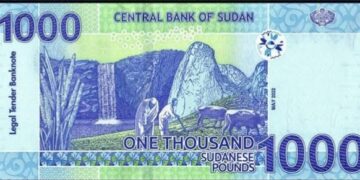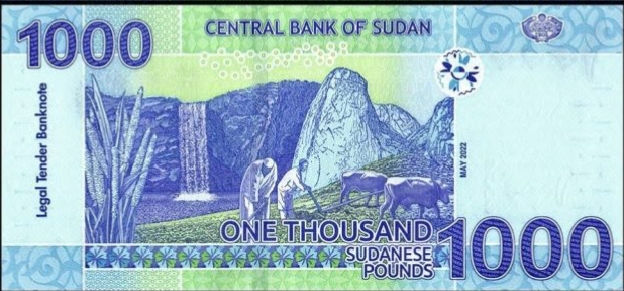By Enyichukwu Enemanna
The Sudanese government has announced the introduction of new banknotes into the market, aiming to bring stability to its crumbling economy and encourage the largely unbanked population to open bank accounts.
The initiative, launched in December, is also part of efforts to ensure that funds allegedly looted by the paramilitary Rapid Support Forces (RSF) are rendered worthless.
Sudan has been embroiled in a two-year conflict between the army and the RSF, which has severely damaged the economy, devalued the currency by three-quarters, and left half the population facing hunger – a development the UN said is the largest humanitarian crisis in the world.
Finance Minister Jibril Ibrahim, said the initiative has been successful, stating that the government’s move has significantly boosted bank deposits.
“This helps the banking sector, and when you help the banking sector, that helps the state to finance projects, including the war effort and productive activities,” Ibrahim told Reuters in an interview.
Unlike in previous currency exchanges, in order to receive the new 500 ($0.20) and 1,000 ($0.50) pound notes, people are expected to deposit their old notes in a bank and then are allowed to withdraw limited amounts daily – a development that has largely encouraged the unbanked population to open accounts.
Since the outbreak of the war between the army and the paramilitary in April 2023, when RSF soldiers were believed to have looted dozens of banks and blocked farming, the military government has struggled to pay salaries and finance essential goods such as medicine.
Ibrahim said that the country had produced 64 tonnes of gold last year and officially exported around half, implying that the proportion of looted gold in army-controlled areas had fallen.
A source at Sudan’s central bank said the new notes were printed in Russia, one of several foreign powers that have intervened on both sides.
The RSF has criticized the introduction of the new banknotes, calling it illegal and citing it as one of the reasons for forming a parallel government in territory it controls.
Traders say the process has affected sales, as many people still lack identification papers needed to open a bank account, while others do not have smartphones to make transfers for purchases.


































